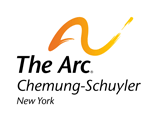Did you know that there are a variety of potential financial incentives that your business may be able to utilize when you employ people with disabilities? To obtain complete information for which benefits your business may qualify, e-mail: centerforemploymentexcellence@omr.state.ny.us. Here are some of the most common incentives available:
Federal Work Opportunity Tax Credit (WOTC):
Provides employers with a first year tax credit up to $2,400 of the first $6,000 in wages paid to an eligible worker with a disability who works at least 400 hours annually.
NYS Workers with Disabilities Employment Tax Credit (WETC):
Employers can claim a State tax credit of up to $2,100 of the first $6,000 in wages paid to an eligible worker with a disability who works at least 400 hours annually, during the second year of employment.
Work Try-Out (WTO):
Provides employers with 100% wage reimbursement for up to 4 weeks of employment to try out a worker's job performance
On-The-Job Training (OJT):
Reimburses the worker's salary, on a sliding scale, up to 3 months, while the worker is being trained
Job Coach Services:
Provides an employer with an experienced job coach, at no cost, to coach the newly hired worker for as long as requested to learn the job and meet performance standards
Government Tax Credits:
For businesses that may need building modifications to accommodate individuals with disabilities
Disabled Access Credit:
The Disabled Access Credit provides a non-refundable credit for small businesses that incur expenditures for the purpose of providing access to persons with disabilities. An eligible small business is one that that earned $1 million or less or had no more than 30 full time employees in the previous year; they may take the credit each and every year they incur access expenditures. Refer to Form 8826, Disabled Access Credit (PDF), for information about eligible expenditures.
Barrier Removal Tax Deduction:
The Architectural Barrier Removal Tax Deduction encourages businesses of any size to remove architectural and transportation barriers to the mobility of persons with disabilities and the elderly. Businesses may claim a deduction of up to $15,000 a year for qualified expenses for items that normally must be capitalized. Businesses claim the deduction by listing it as a separate expense on their income tax return. Also, businesses may use the Disabled Tax Credit and the architectural/transportation tax deduction together in the same tax year, if the expenses meet the requirements of both sections. To use both, the deduction is equal to the difference between the total expenditures and the amount of the credit claimed.
On-Site Technical Assistance and Training:
Professional advice is available to accommodate the needs of individuals with disabilities at a work site, which may include evaluation of hiring and/or training needs and seminars/workshops for managers and co-workers.
For More Information: NYS Department of Labor – Workers with Disabilities Tax Credit


Let's Get Social